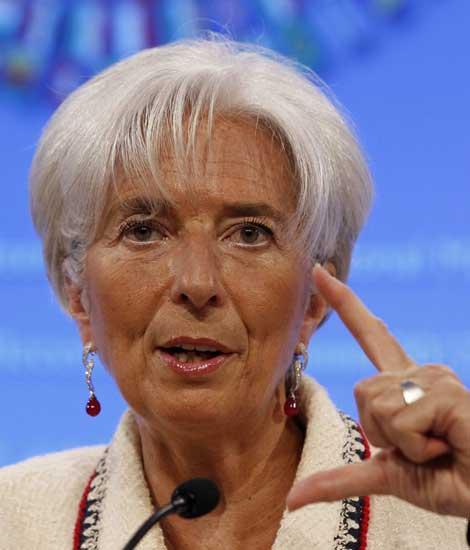
 Reuters is reporting: “The International Monetary Fund said on Friday Egypt’s government and political partners have made good progress in agreeing on the content of an IMF funding program for the country. … Egypt and the IMF are in discussions on a $3.2 billion loan program. The IMF is insisting that any agreement on financing is backed by Egypt’s government and political partners ahead of June elections.”
Reuters is reporting: “The International Monetary Fund said on Friday Egypt’s government and political partners have made good progress in agreeing on the content of an IMF funding program for the country. … Egypt and the IMF are in discussions on a $3.2 billion loan program. The IMF is insisting that any agreement on financing is backed by Egypt’s government and political partners ahead of June elections.”
As the IMF and World Bank meetings begin Friday in Washington, D.C., the Popular Campaign to Drop Egypt’s Debt sent a letter to both expressing its reservations about the interim government’s intent to take more loans — and most explicitly the $3.2 billion IMF loan. In its letter, the PCDED highlights the unelected Egyptian government’s lack of transparency — “the government continues to conceal the details of the economic program that is associated with the loan that Egypt is currently negotiating with the IMF” — and state that such a loan may constitute illegitimate odious debt.
AHMAD SHOKR, shokr.ahmad at gmail.com
SALMA HUSSEIN, salmaahussein at gmail.com
Shokr and Hussein are members of the the Popular Campaign to Drop Egypt’s Debt, which sent the following letter to Christine Lagarde, the managing director of the IMF:
Dear Ms. Christine Lagarde,
The Popular Campaign to Drop Egypt’s Debt is writing you to raise concerns on the way the IMF loan is being negotiated and propose actions by the IMF to correct the problems.
Unfortunately the Egyptian government continues to pursue the same style of the pre-January revolution loan handling. For example, the government continues to conceal the details of the economic program that is associated with the loan that Egypt is currently negotiating with the IMF. This approach is reflected in that:
1. The government has not disseminated the economic reform program through media outlets at any stage during its preparation. The details of the initial draft of the program were unveiled to the public only after the Campaign leaked the document to the media.
2. Thus far, the parliament and the Ministry of Finance refuse to disclose the details of the economic reform program after it has been amended.
3. The economic reform program has not been subject to any form of public debate.
4. The economic reform program was never discussed in any public sessions in the parliament. It was only discussed behind closed doors among members of the parliament’s planning and budget committee, and representatives of the government and the IMF.
5. The parliamentary planning and budget committee had announced initially its refusal to accept the economic reform program. It then reversed its position and told the press it approves of the program, without any explanation to the public of the reasons for shifting its position.
These practices are in direct contradiction to the transparency and accountability principles of both the IMF and the Egyptian governments. The Egyptian people will bear responsibility for the obligations of this loan for years to come, and thus they must actively participate in formulating its terms.
Therefore, the Popular Campaign to Drop Egypt’s Debts urges the IMF to:
– Disclose the details of the economic reform program and the details of previous drafts of the program so that the IMF would not be complicit in sidelining the Egyptian people. Inaction from the IMF would signify its tacit approval of negotiating a loan in isolation from the Egyptian people and of continuing the non-transparent, unfair practices of the Mubarak regime.
– Cease negotiations associated with the proposed loan to Egypt, because the government engaged in these negotiations is unelected and its key figures belong to a corrupt and non-democratic old regime. The Egyptian people continue to struggle to change the old regime in order to establish a society and economy based on transparency, accountability, and citizens’ participation in decision-making affecting their lives. Egyptians are striving for a society and an economy that address the needs of the majority of the people and that distribute burdens among its members according to their respective financial capabilities and obligations.
– Finally, the Campaign believes that the persistence of secrecy surrounding the negotiations of the details of the agreement with the IMF will render the proposed loan suspect of being “odious.”